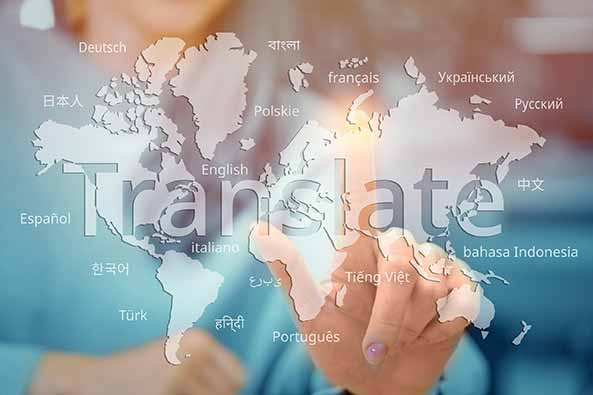Here at Workplace Languages, it’s not uncommon to receive a request for translation services when the client really needs interpretation services. The opposite is also true; sometimes people request interpretation when they really need translation. To understand both professional language services, let’s look at how they’re different and how they’re the same.
3 Key Differences
- Method: The first difference between translation and interpretation is simple. Translation is for written communication and interpretation is for oral communication. Consider these examples. If you need your website content in another language, you need a professional translator. If you need to explain a deal over the phone to a client who speaks another language, you need an interpreter.
- Medium: Translated materials are most often delivered electronically, but their end result may be in printed materials, advertising campaigns, books, websites, or any medium that is read by the end user. Interpretation can be done in-person, over the phone, or through a digital platform such as Zoom, Teams, or Google Meet.
- Process: Translation of written materials takes time and often requires a process of reviews and revisions to ensure complete accuracy. Interpretation occurs in real-time in a live setting. Interpreted communication is immediate with no time for reviews.
3 Ways Interpretation and Translation Are Similar
While translation and interpretation do indeed have key differences, they also have a few things in common. Take a look:
- Purpose: Both translation and interpretation are used to close the communication gap and communicate to people in their native language. Doing this through the spoken and written word is critically important to companies who are competing in global market.
- Skill: Translators and interpreters are all exceptionally skilled professionals who have spent years homing their craft.
- Adaptable: Whether you need translation of written materials or real-time interpretation of speech, the process needs to adapt to your specific audience and industry. Keep this in mind when choosing an interpreter or translator.
Many companies looking for professional language services need both translation and interpretation services. As a company dedicated to providing language solutions that close the communication gap, we can help you with all your language needs. Contact us for a free consultation and quote. With a large team of language specialists, we have the corporate language solution that’s right for you.




